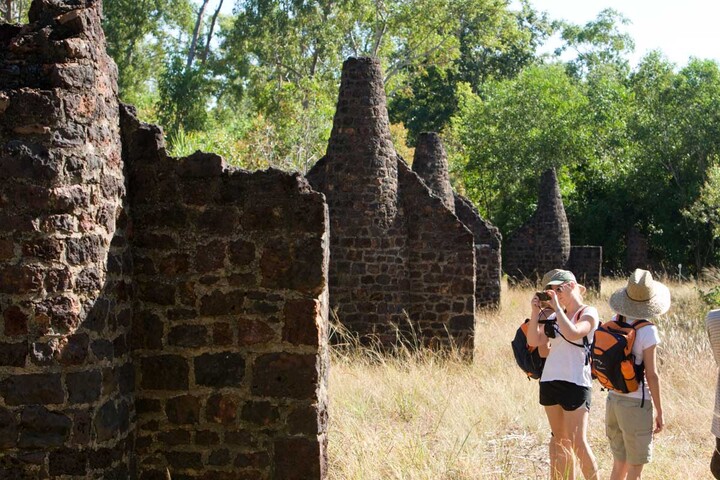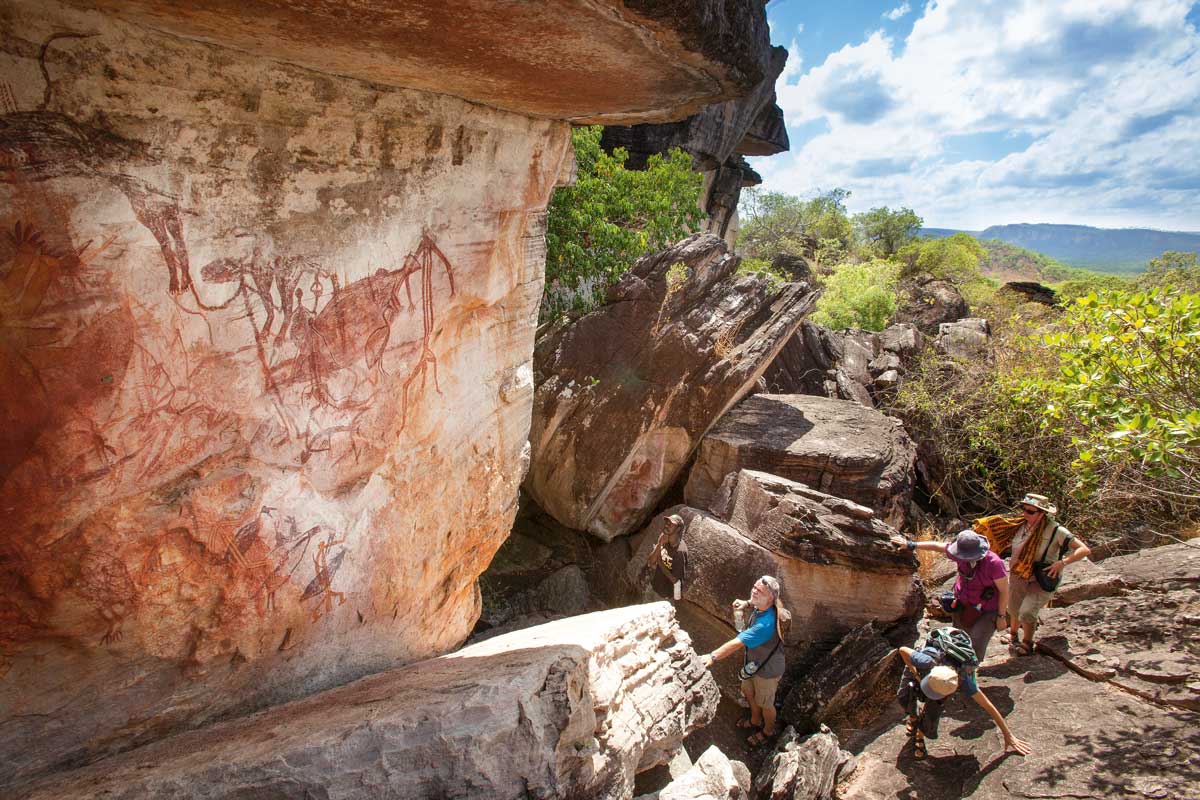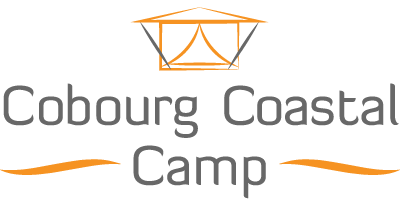The History Surrounding Cobourg Coastal Camp

Cobourg Coastal Camp (owned and operated by Venture North Australia) was established in 1996 with a major focus on offering an ‘off-the-beaten-track’ cultural and nature based camping (now days glamping) experience. In 2010 Venture North’s head guide, Hugh Gange, seized this ‘once in a life time’ opportunity to purchase the business with his brother, Aaron as partner. Before the transferal of concessions was approved, Hugh and Aaron were scrutinised by the Traditional Owners, Northern Territory Parks and Wildlife executives, the Cobourg Marine Park Board and the Northern Land Council (NLC). The governing bodies were ensuring that the management had sound business practices, were committed to ecologically sustainable tourism, and would enhance tourism experiences in the Top End.
Today Hugh is the boat skipper and camp manager residing on the Cobourg Peninsula while Aaron is the marketing, reservations and operations manager, residing in Darwin.

There’s a very colourful history surrounding Cobourg Coastal Camp and it pre-dates the present operation by a mere 50,000years+. The land has always been and will always continue to be the land of the Madjunbalmi Clan. The nearby beaches, bushland and mangrove creeks has long been an important hunting and gathering ground for fish, mud mussels, mangrove worms, oysters, stingray and native fruits and yams. At Cobourg Coastal Camp, guests have the opportunity to meet local Indigenous people and learn firsthand about their extraordinary culture, interpreted through a variety of mediums including art, hunting, traditional plant uses and their experiences with pioneers.
Little know that hundreds of years ago, well before British or Dutch occupation, ancient traders called the Macassans, utilised the prevailing winds to navigate their praus (boats) from Sulawesi in Indonesia to the shores of Port Essington. Here they set up camp during the wet season in search of trepang (sea cucumber) – Australia’s first export! During this time they traded goods (i.e. tobacco, alcohol, tools and rice) with the Indigenous people in return for trepang. This enabled the Macassans to develop a flourishing trepang trade with China. With the onset of the dry season, the intrepid travellers would return home utilising the southeast trade winds. Fascinating evidence of their occupancy is recorded through rock art, middens, Timor ponies and relics such as woks used to process the trepang.
This flourishing trade, alongside fears of Dutch and French invasion, were the main influences for the British to establish a military and trading post on the shores of Port Essington.After surviving for 11 long years between 1838 and 1849 it was abandoned. Stone ruins of the failed settlement still stand on the shoreline of Port Essington and serve as a reminder of the hardships faced by the early colonists.
When leaving Cobourg Coastal Camp, guests often comment on how privileged they feel to have travelled to this part of the world as they return home enlightened and more connected to Indigenous culture. They are often surprised to learn of our European heritage and are in awe of the remote wilderness areas, pristine beaches and unique wildlife they have encountered.
